Shafqat Hussain: Family's despair after Pakistan convict hanged
- Published
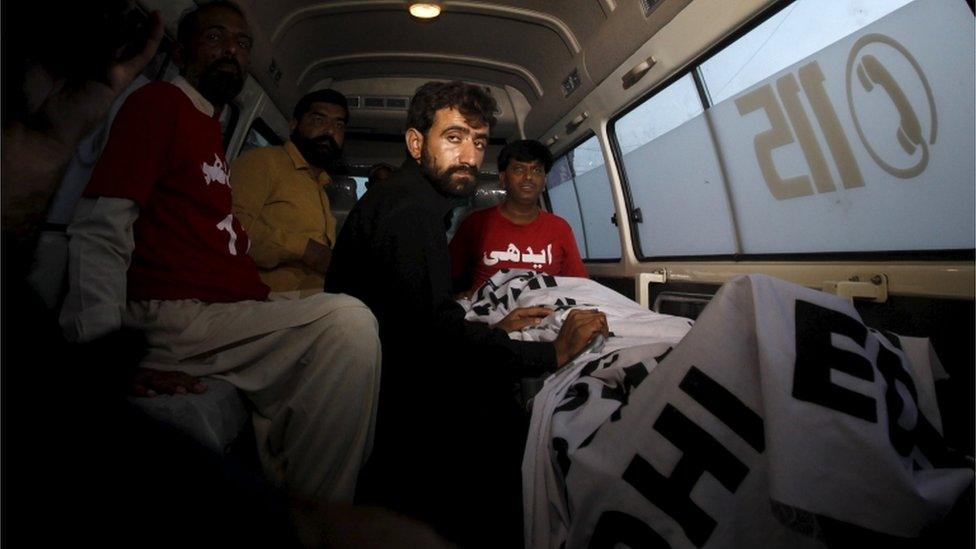
Shafqat Hussain's family were at the jail to say goodbye and to collect his body
Lawyers for Shafqat Hussain argue that there was never a credible investigation into his age at the time he was convicted of killing a child in 2004.
Despite appeals from human rights groups, he was executed in Pakistan on Tuesday.
His lawyers claim he was 14 when he was tortured into a confession and charged with involuntary manslaughter more than 10 years ago.
But the Pakistani authorities have said Shafqat Hussain's legal team failed to submit sufficient evidence to show he was a juvenile.
His brother, Manzoor, was at the jail to receive his body after the execution.
"What justice system is this?" Manzoor said. "He was just two and half years my junior - he was a young man."
Shafqat Hussain's uncle, Mohammad Altaf, who was also at the jail when he was executed, said his long imprisonment was inhumane.
"This is cruel... unjust. He was sentenced 12 years ago and all the appeals were rejected in one year. If he had been in prison for two more years he would have served a life imprisonment term already."
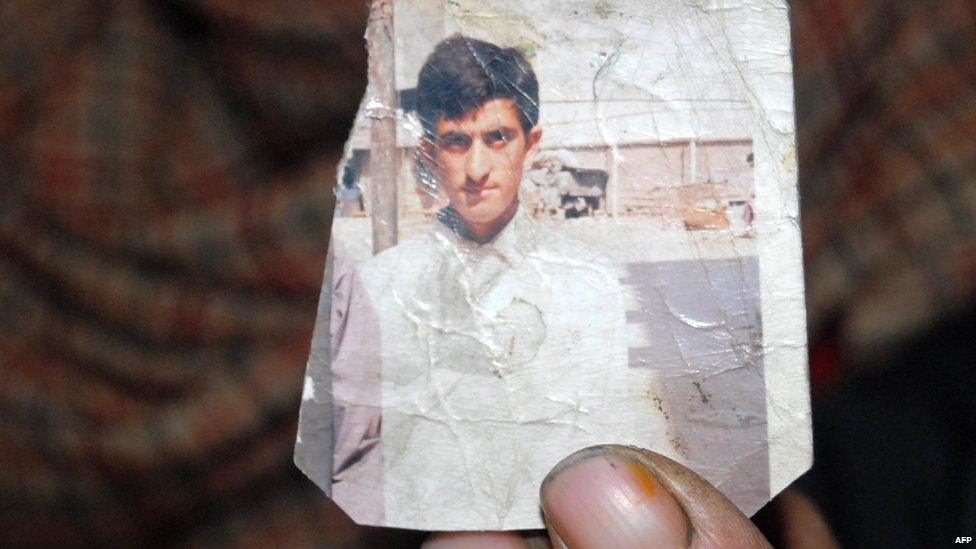
Shafqat Hussain's lawyers say he was a minor at the time of his conviction
Shafqat Hussain met his family one last time before midnight, then was hanged shortly before dawn at the jail in Karachi.
Legal challenges and civil society campaigns saw his execution postponed four times this year.
But in the end, all the appeals and lobbying were ultimately turned down, including two letters from the provincial governments of Sindh and Pakistani-administered Kashmir which both asked for a stay on the execution.
Shafqat Hussein's case may have caused an international outcry to get him off death row but inside Pakistan it was cause for debate.
Many here support the death sentence and see it as justice being served in capital crimes.
Amnesty International described his hanging as "a sad day" for Pakistan. The sentiment was echoed by many activists on social media.
Others however, criticised NGOs for wanting to stop the hanging of someone they described as a child killer.
The authorities insist that Shafqat Hussain's case was properly handled.
"[His] case was given due process," Ashtar Ausaf Ali, minister of state and a special assistant to the prime minister on law, told the BBC.
Mr Ali also added that for the last few months the government has revised the case very closely and looked at it a number of times.
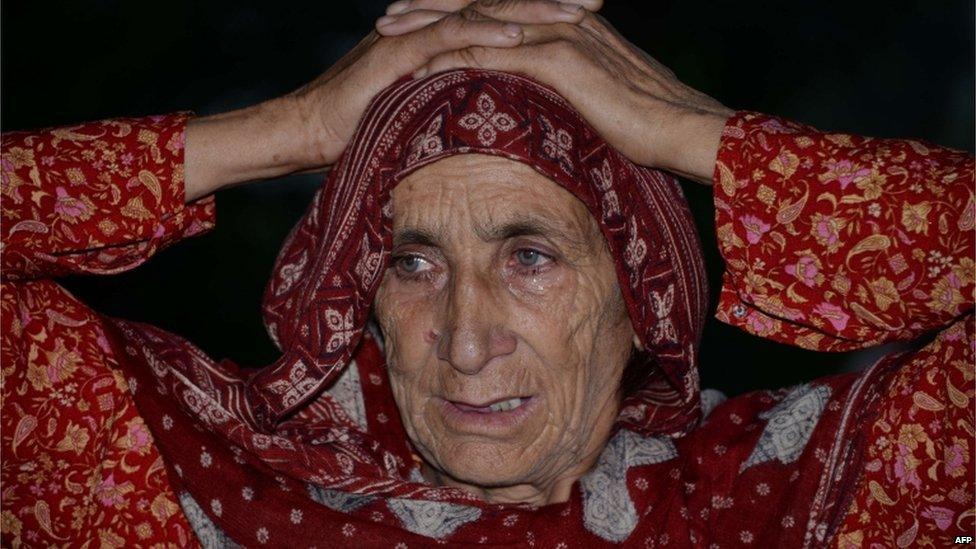
Human rights groups rallied around Shafqat Hussain's mother as she proclaimed his innocence - but to no avail
The Pakistani government partially lifted a moratorium on capital punishment in the aftermath of an attack on a school in Peshawar last December, in which more than 150 pupils and teachers were killed by the Taliban.
The attack shocked the Pakistani people and put the political and military leadership in a very tough spot.
Since then the government has been trying to prove it's taken measures to combat militancy.
At the time Prime Minister Nawaz Sharif said the country was in an "extraordinary situation" that needed "extraordinary actions".
Later in the year the authorities lifted the moratorium on all capital punishment.

Executions around the world
Pakistan has executed about 200 people since December 2014, almost all of them this year
Figures for executions in other countries in 2015 are not yet available
By the end of 2014, the countries with the highest number of reported executions were: Iran: 289, Saudi Arabia: 90, Iraq: 61, USA: 35, and Sudan: 23
In 2013 the numbers were: Iran: 369, Iraq: 169, Saudi Arabia: 79, Somalia: 68, USA: 39
China and North Korea refuse to divulge information on the number of executions that take place within their borders

Pakistan is believed to have the largest number of death row inmates in the world. More than 8,000 prisoners are awaiting execution - many of whom have been in jail for over a decade.
So far about 200 people have been executed since December - only a small fraction of them were linked to terrorism.
Legal charities and human rights organisations have criticised the move saying the death penalty will not combat terrorism.
"The very logic of this is wrong," said Shahzad Akbar, a fellow at the legal charity Reprieve. "How can you deter a would-be suicide bomber by the death penalty?"
But Mr Ali insists that it has acted as a deterrent.
"The last eight months when the death penalty has been carried out was better than the last eight years (of the moratorium)," he said.
However, he didn't give any specific crime rates before or after the lifting of the moratorium.
"This is the law of the land," Mr Ali added. "It should be respected by all and adhered to."
But lawyers say the difficulty lies in Pakistan's flawed criminal justice system.
"There are inherent problems within the Pakistani justice system - like due process, proper legal representation and examining evidence," said Shahzad Akbar.
"What worries me is that there are many cases like Shafqat's that we don't have access to."
"People who have been languishing in jail for years and unless their cases are opened and looked at properly - the government should not hang them."
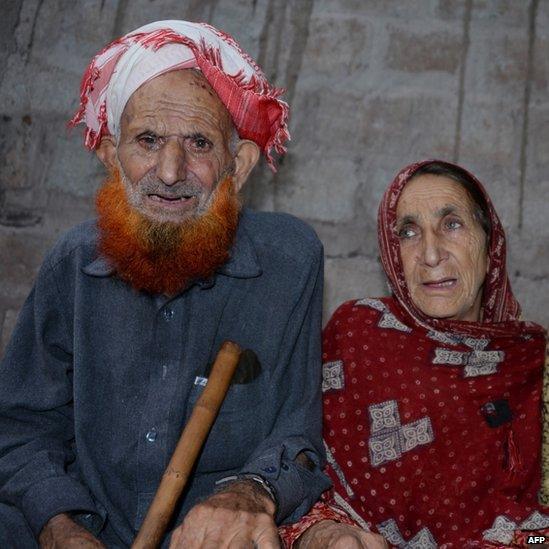
Shafqat Hussain's parents spent years trying to free their son from custody
- Published4 August 2015
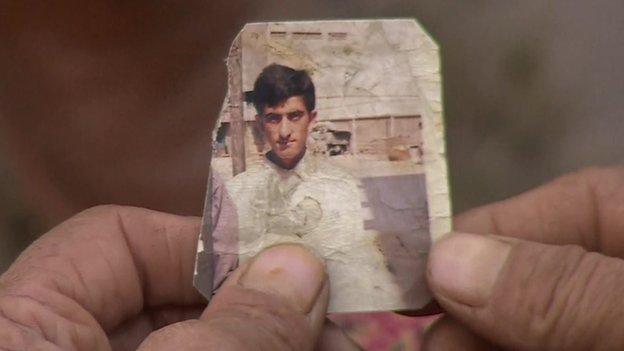
- Published16 December 2015
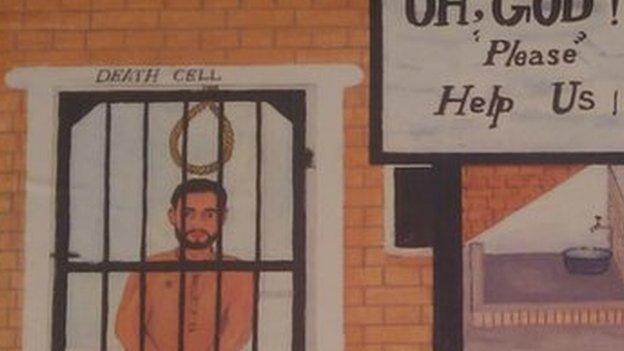
- Published25 December 2014
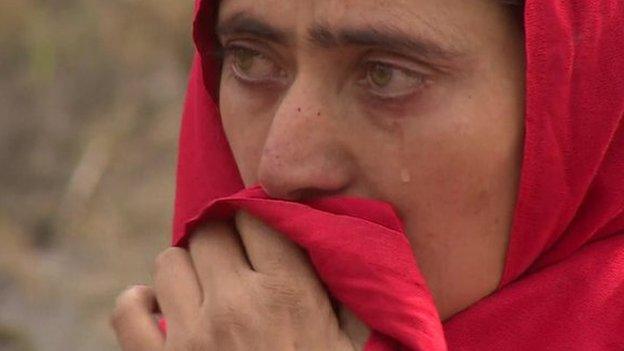
- Published10 March 2015
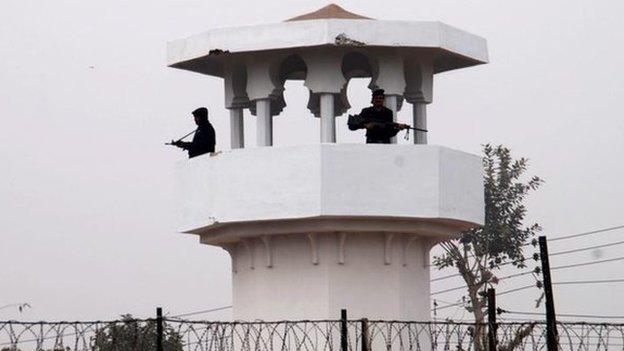
- Published9 June 2015
